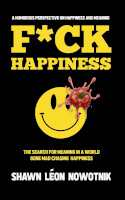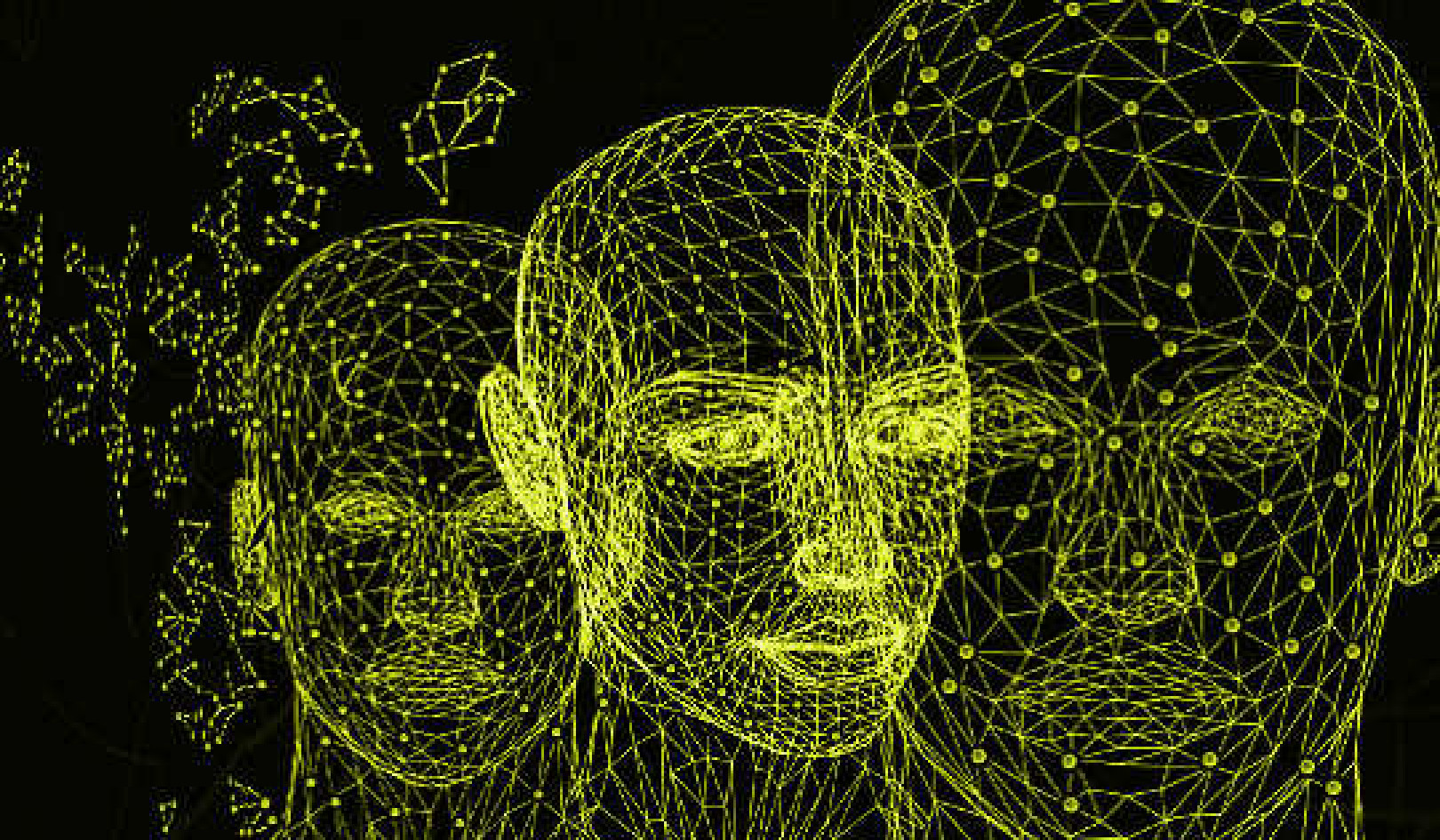In this Article:
- Why the pursuit of happiness is often misleading and disappointing.
- How can acknowledging life's complexities lead to genuine fulfillment?
- What are the six strategies to escape the happiness trap?
- How does embracing authenticity contribute to true happiness?
- What is the difference between fleeting happiness and lasting meaning?
6 Ways to Free Yourself from the Happiness Trap
By Shawn Léon Nowotnik, MSW, LCSW
Why do we chase happiness? It’s a question worth asking in our fast-paced, media-driven world. We’re often sold the idea that happiness is the ultimate goal — a narrative perpetuated by advertisements, social media, and popular culture. But this relentless pursuit will bring far more problems than benefits.
Chasing happiness can prompt us to live behind a facade. Constantly striving for a brief feeling that often eludes us can be completely exhausting. The chase not only leaves us filled with disappointment, but also unfulfilled — and unhappy. So if you want to be happy, don't chase happiness.
There are far better ways to be happy
Instead of aiming for an elusive goal called "happiness," we can find true fulfillment through genuine personal growth, meaningful relationships, and making a difference in the world around us. Stepping off the hamster wheel of instant gratification opens us to embracing our emotions, imperfections, and the uncertainties of life — because that’s what it means to be human. By not trying so hard to be happy, we'll be happier.
I've seen this time and again, in my patients, my friends, and loved ones as well: people transform once they break free of the happiness trap.
Here are six strategies that truly work:
1. Take off the blinders.
To break free from the happiness trap we need to recognize it for what it is: a misleading construct that keeps us chasing after an unrealistic idea. The façade of happiness quite often manifests itself as unrealistic expectations — that we should always feel positive and experience happy emotions.
Living that way leads us to suppress and deny genuine feelings. We get caught in a never-ending cycle of self-criticism and self-scrutiny as we try to conform to an illusion.
But when we take off the blinders, we begin to see reality. We come to realize that happiness is just one state of feeling out of a multitude of deeper emotions. Acknowledging this reality allows us to appreciate the complexity of our lives and encourages us to seek a deeper understanding of ourselves. Instead of self-criticism, we start to accept who we truly are.
2. Escape the clutches of consumerism.
What's spurring this drive to always be happy? Consider the role of consumerism. Advertisements, marketing, and media create a relentless narrative that connects happiness to acquiring material possessions and rewards — be it the latest shiny gadget, trendy clothes, fancy sports equipment, or a lavish vacation.
This perspective not only distorts our understanding of fulfillment, it also leads to a perpetual cycle of want and dissatisfaction in which we never have enough.
Acknowledging that we're being sold a dream is the first step. Then we can start making more conscious choices. When we understand the mechanisms at play, we can seek out experiences and relationships that genuinely nourish our souls rather than grab for things to fill our shopping carts.
3. Jump off the hedonic treadmill.
The hedonic treadmill is a phenomenon in which individuals quickly return to a relatively stable level of happiness despite major positive or negative events or life changes. Even when we achieve a new milestone or acquire something meant to bring us joy, that sense of happiness is short-lived.
To break free from this cycle, we need to appreciate what we already have and find contentment in the present moment. Engaging in practices like mindfulness can help us savor the little joys in our daily lives, allowing us to experience happiness without the constant need for external validation or new acquisitions. This shift in perspective fosters a deeper sense of gratitude and fulfillment that doesn’t depend on the next big thing.
4. Embrace life's contradictions.
Life is inherently filled with contradictions, ups, and downs. Not every moment will be filled with joy. Once we acknowledge that, we can start building resilience and become better equipped to navigate life’s inevitable challenges. Recognizing that ups and downs are a natural part of the human experience allows us to cultivate acceptance rather than resistance.
Instead of fearing difficult emotions, we can learn to sit with them, understanding that they often lead to personal growth and deeper connections with others. By embracing the full spectrum of our emotions, we can foster a more authentic and enriched life, where both joy and sorrow play vital roles in our journey.
5. Honor your authenticity.
To discover what truly makes us happy, we need to know who we are at our core. This journey of self-discovery requires introspection and openness — we need to be willing to explore our values, passions, and desires. Authenticity is about aligning our actions with our true selves, rather than conforming to societal expectations or external pressures.
When we embrace our uniqueness and honor our individual paths, we open ourselves up to meaningful experiences that resonate on a deeper level. When we are true to ourselves, we can build authentic connections with others, and create healthy relationships grounded in mutual respect and genuine understanding.
6. Chase meaning instead.
Consider the difference between happiness and meaning. Happiness is that brief high that comes when your favorite pizza's delivered to your door or you purchase new sneakers. Those are external pleasures — the feeling of joy comes from getting what you wanted, but it won't last. The pizza will get eaten. The sneakers will get worn out.
Meaning goes beyond, to the big picture. It's about a lot more than a food delivery or a new pair of shoes. It's a deeper sense of satisfaction that comes from knowing you're living a purposeful life. And it's a rock-solid foundation you can build the rest of your life on.
Redefining Fulfillment
In a world that often equates happiness with success and material gain, it’s crucial to redefine what fulfillment truly means: a profound sense of meaning, connection, and awareness that the human experience is wonderfully complex.
Letting go of the need to chase happiness enables us find overall well-being and satisfaction with our lives. And that frees us to make a difference in the world — and help make it better for ourselves as well as everyone around us.
Copyright 2024. All Rights Reserved.
Article Source:
BOOK: F*ck Happiness
F*ck Happiness: The Search for Meaning in a World Gone Mad Chasing Happiness
by Shawn Léon Nowotnik. In today's world, the pursuit of happiness reigns supreme, inundating us with messages of eternal bliss and relentless positivity. Against this backdrop, the provocative title "F*ck Happiness" emerges as a daring rebellion, challenging the shallow promises of a happiness-centric culture. Through its pages, readers are invited on an unconventional journey, one that transcends superficial ideals to explore authenticity, meaning, and the intricate fabric of human existence.
In today's world, the pursuit of happiness reigns supreme, inundating us with messages of eternal bliss and relentless positivity. Against this backdrop, the provocative title "F*ck Happiness" emerges as a daring rebellion, challenging the shallow promises of a happiness-centric culture. Through its pages, readers are invited on an unconventional journey, one that transcends superficial ideals to explore authenticity, meaning, and the intricate fabric of human existence.
For more info and/or to order this book, click hereclick here. This title is available as a Kindle edition and as an Audiobook.
About the Author
 Shawn Léon Nowotnik, MSW, LCSW, is an artist, author, filmmaker, and therapist living outside Chicago. After losing his son to suicide, he was compelled to reevaluate his own narrative — and look at how loss, mental health, and addiction can affect every aspect of a person’s life. He's developed holistic treatment programs and advocates for improved mental health and addiction disorder treatments, as well as researching, writing, and public speaking about addiction, community, mental health, narrative, and social issues. His new book is F*ck Happiness: The Search for Meaning in a World Gone Mad Chasing Happiness. Learn more at shawnleonnowotnik.com.
Shawn Léon Nowotnik, MSW, LCSW, is an artist, author, filmmaker, and therapist living outside Chicago. After losing his son to suicide, he was compelled to reevaluate his own narrative — and look at how loss, mental health, and addiction can affect every aspect of a person’s life. He's developed holistic treatment programs and advocates for improved mental health and addiction disorder treatments, as well as researching, writing, and public speaking about addiction, community, mental health, narrative, and social issues. His new book is F*ck Happiness: The Search for Meaning in a World Gone Mad Chasing Happiness. Learn more at shawnleonnowotnik.com.
Article Recap:
The article challenges the conventional pursuit of happiness, highlighting it as a misleading goal that often leads to disappointment and dissatisfaction. It presents six practical strategies for escaping this 'happiness trap,' including embracing life's inherent contradictions, stepping away from consumerism, and finding meaning beyond superficial joys. By adopting these approaches, individuals can cultivate a deeper sense of fulfillment, authenticity, and well-being that is rooted in meaningful engagement with life, rather than in transient pleasures.


























